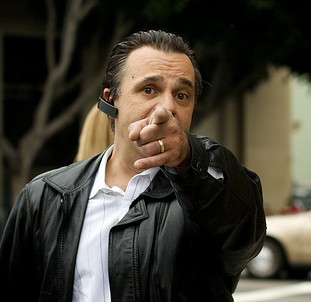Asking “Why?” to Create Rich Characters for Your Novel
For this week’s Throwback Thursday, we’re looking at an excerpt from a previous post titled Why, Why, Why?
I do a lot of manuscript critiques. Hundreds a year. I find the best way to get writers thinking about their plot and characters is to ask a lot of questions. And since I’m a novelist who loves deep, rich characters, I like to challenge my editing clients to push past the ordinary and into the realm of the complex.
For, people are complex. Humans are complicated. They really are. Maybe someone will disagree with me and claim the opposite. That people are simple, easy to figure out.
Well, I’m guessing those who really believe that will probably portray boring, flat characters in their fiction.
I’m hoping, though, that you want to create characters that are complex and sometimes unpredictable who have countless facets to their personalities and seeming contradictions. Why? Because real people are like that, and we writers are supposed to be encapsulating real life in our novels. (Unless you’re deliberately trying not to for some reason).
And to me the best way to dig deep and get to the heart of a character is to ask “why?”
Socrates Had the Right Idea
Remember that guy Socrates? Something called Socratic questioning developed out of his teachings. He was a guy who liked to ask why. A lot. Here’s what Wikipedia has under the topic:
Socratic questioning is disciplined questioning that can be used to pursue thought in many directions and for many purposes, including: to explore complex ideas, to get to the truth of things, to open up issues and problems, to uncover assumptions, to analyze concepts, to distinguish what we know from what we don’t know, to follow out logical implications of thought, or to control the discussion.
The art of Socratic questioning is intimately connected with critical thinking because the art of questioning is important to excellence of thought. What the word Socratic adds to the art of questioning is systematicity [sic, should be sytematicness], depth, and an abiding interest in assessing the truth or plausibility of things.
Isn’t that what we writers want—to get to the “truth” about our characters, open up issues and problems, make our story plausible?
No, Don’t Show Me Magazine Pictures
Some writers like to cut out magazine photos to help them create their characters. I’m guessing they think by finding a guy with certain looks, it will make the character come alive to them. I hear writers talk about which actors they imagine populating their novels.
That idea kind of horrifies me. I mean, the last thing I want to envision is Angelina and Brad speaking my characters’ lines. Why? Because suddenly all I’ll see and hear is Angelina and Brad, and my original, fresh character ideas are thrown out the window.
I have the same problem with pigeon-holing characters by randomly choosing a Myers-Briggs formulaic description of a character personality. Why? because they are, yes, random, pigeon-holing devices that squeeze characters into a ready-made fast-food box and don’t allow them to grow organically within the “walls” of the story itself. It also smacks of laziness to me.
Why bother taking the time to really grow your characters when you can just cut out a picture and slap on a “type indicator assessment,” and voila!
Creating great characters takes time and effort. But if you really want to serve the needs of your story, it’s worth it. Your characters are your story, and so it’s crucial they are holistically integrated into the premise, plot, setting, and every other element in your story.
But although it takes time, it’s not all that hard to do. All you have to do is ask “why?”
“Why” Is the Key
A man goes on a rampage and kills people in a post office. Why? Because he’s angry. Why? Because he lost his job. Why? Because he kept messing up and couldn’t concentrate. Why? Because he just turned forty and his birthday depressed him.
Why? Because his father, that jerk, always told him he’d amount to nothing, and it upset him. Why? Because he hates his father and wishes he was dead. Why? Because his father abused him all his life, treated him harshly, made him feel like a loser.
Why? Well, clearly he was a loser. His father was right. He would never amount to anything. He may as well give up. Why? Because he no longer has any hope. Why? Because of how he was raised.
You can do this kind of questioning with each of your characters. You might have a plot, but all your characters have to drive the plot.
How? By way of their inner motivation. People do things for reasons. I can’t tell you how many novels I critique that portray characters who do things (sometimes big, dangerous, crazy things) for no reason whatsoever.
And you know what? It’s absolutely not believable. No one is going to risk their life by diving into a wild roaring ocean to save a pocket watch. Right? Well, if you set up the need, lie, and the core fear of your character carefully, it might be absolutely believable for him to do such a crazy thing.
Motivation Is Everything, but . . .
But it has to be believable! Why? Okay, I don’t need to answer that. You know the answer.
If you ask “why” of your characters, you can trace back and find (or create) the need they have, the fear that drives them, and the lie they believe. This character I created above has a need, a fear, and a lie he believes. Those three things drive him. They are behind his motivation for everything he does in the story.
The thrilling part of writing great stories with great characters is showing how these characters can uncover their lie, fear, and need, face them head-on, and actually conquer them or grow beyond them.
Little kids know instinctively that asking why takes us to the heart of every puzzle. They ask, “Why, why, why?”
Writers can learn a lot from the natural inquisitiveness of young children. Become like a child and start asking.
“Why?”
Have you used this method when developing characters? What questions do you find helpful to ask to get to their core?












Oh yes, the why question!!! I ask it all.the.time. Of any and every character! Even my evil character (who my team member called a wildebeest) has a story that answers why she was so evil…
Excellent points and so true. My characters seem to emerge from nowhere and I have to follow them. It astounds me that people cut out pictures and stick a character onto them and try to make it work – but there you go. My lot are such a gobby bunch that I haven’t got time to look around.
The art of asking why of characters to get at their heart and desire. These are great questions to ask to discover your character’s motivation. Thanks! I’ve shared generously online.
Thanks! I am really big about this!
Hi, I stumbled upon your post and really liked it. I am not a writer but a big reader. I love to analyze a good story. Characters that stick in your mind are crucial for me. Your post highlights great ways to make characters come alive and stay with you.
Thanks.